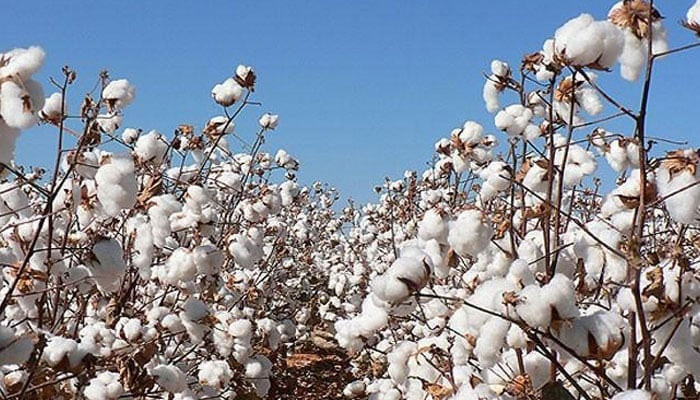Pakistan, US discuss boosting cotton trade, textile cooperation
LAHORE: US Consul General in Lahore Kristin K Hawkins met with office bearers of the All Pakistan Textile Mills Association (APTMA) to explore avenues for enhancing bilateral trade and economic cooperation between Pakistan and the US.
The discussions focused on the significant potential for collaboration in the cotton and textile sectors, while also exploring opportunities to expand trade and investment in other key areas. Both sides emphasised the importance of reducing the trade deficit and diversifying major traded commodities in light of the US reciprocal tariffs.
Participants agreed that Pakistan holds strong potential for growth not only in textiles but also across various industrial sectors. APTMA leadership reiterated its commitment to continued engagement and dialogue with American counterparts to increase trade volumes and maximise the benefits of the economic partnership.
Speaking on the occasion, APTMA Chairperson Kamran Arshad highlighted that the US is the primary supplier of cotton to Pakistan. He noted that Pakistan is the world’s largest importer of US cotton, and these imports are crucial in compensating for domestic shortfalls in cotton production.
Chairman North Zone Asad Shafi added that the US remained Pakistan’s largest trading partner in 2024, with total bilateral trade reaching $9.85 billion. He added that the country’s exports to the US stood at $5.12 billion, of which $3.93 billion -- or 77 per cent -- comprised textile and apparel products. In contrast, Pakistan imported goods worth $2.14 billion from the US during the same period, including more than $700 million in cotton imports.
Shafi stressed the need for technology transfer to Pakistan, particularly for high-yield cotton seeds, and called for increased collaboration with US cotton research institutions to improve cotton quality and productivity.
-
 Meghan Markle, Prince Harry Friends Suggest Their Marriage 'isn't All It Seems'
Meghan Markle, Prince Harry Friends Suggest Their Marriage 'isn't All It Seems' -
 Andrew Handed Out 'classified' Information To Jeffrey Epstein
Andrew Handed Out 'classified' Information To Jeffrey Epstein -
 Margot Robbie Recalls Wild Party Days And Getting Kicked Out Of Clubs
Margot Robbie Recalls Wild Party Days And Getting Kicked Out Of Clubs -
 NASA's Hubble Space Telescope Discovers ‘Dracula Disk', 40 Times Bigger Than Solar System
NASA's Hubble Space Telescope Discovers ‘Dracula Disk', 40 Times Bigger Than Solar System -
 Annular Solar Eclipse 2026: Where And How To Watch ‘ring Of Fire’
Annular Solar Eclipse 2026: Where And How To Watch ‘ring Of Fire’ -
 Zayn Malik Explains Past Comments About Not Being In Love With Gigi Hadid
Zayn Malik Explains Past Comments About Not Being In Love With Gigi Hadid -
 Internet Reacts To 10 Days Flight Ban Over El Paso
Internet Reacts To 10 Days Flight Ban Over El Paso -
 YouTube Music Tests AI-powered ‘Your Week’ Recap To Summarise Listening Habits
YouTube Music Tests AI-powered ‘Your Week’ Recap To Summarise Listening Habits -
 Kelly Clarkson Ready To Date After Talk Show Exit?
Kelly Clarkson Ready To Date After Talk Show Exit? -
 Is AI Heading Into Dangerous Territory? Experts Warn Of Alarming New Trends
Is AI Heading Into Dangerous Territory? Experts Warn Of Alarming New Trends -
 Google Updates Search Tools To Simplify Removal Of Non-consensual Explicit Images
Google Updates Search Tools To Simplify Removal Of Non-consensual Explicit Images -
 Chilling Details Emerge On Jeffrey Epstein’s Parties: Satanic Rights Were Held & People Died In Rough Intimacy
Chilling Details Emerge On Jeffrey Epstein’s Parties: Satanic Rights Were Held & People Died In Rough Intimacy -
 50 Cent Gets Standing Ovation From Eminem In New 'award Video'
50 Cent Gets Standing Ovation From Eminem In New 'award Video' -
 Bad Bunny Delivers Sharp Message To Authorities In Super Bowl Halftime Show
Bad Bunny Delivers Sharp Message To Authorities In Super Bowl Halftime Show -
 Prince William 'worst Nightmare' Becomes Reality
Prince William 'worst Nightmare' Becomes Reality -
 Thai School Shooting: Gunman Opened Fire At School In Southern Thailand Holding Teachers, Students Hostage
Thai School Shooting: Gunman Opened Fire At School In Southern Thailand Holding Teachers, Students Hostage




